(I)migrant: Perspectives of Minority Integration in Europe
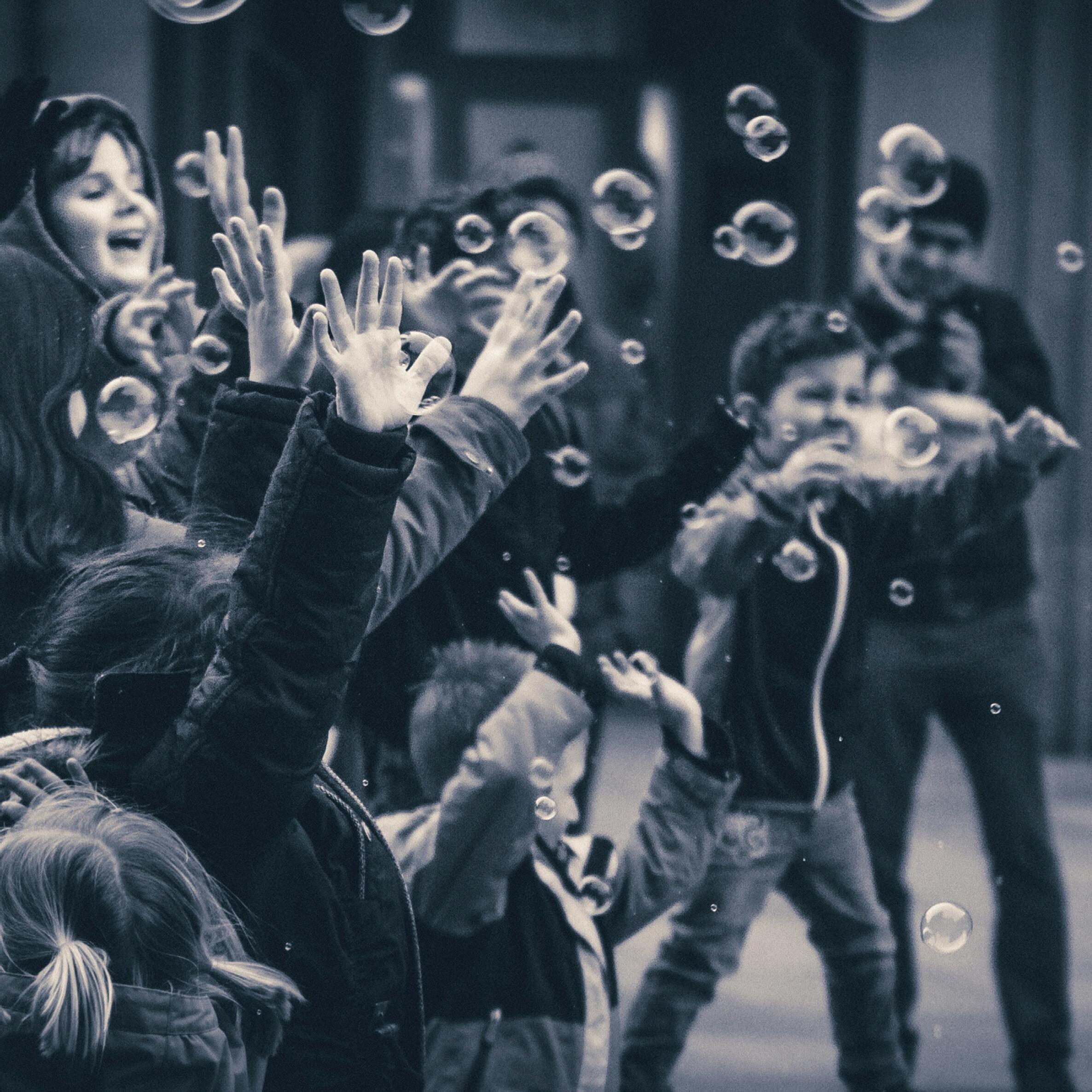
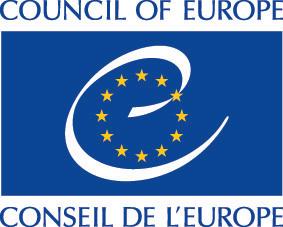

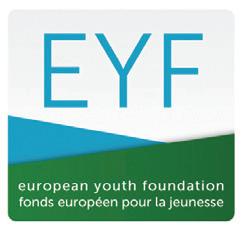
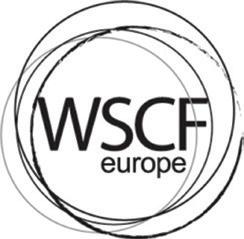
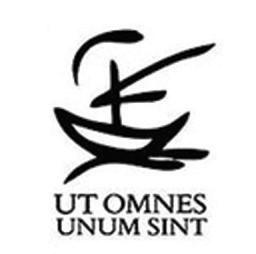
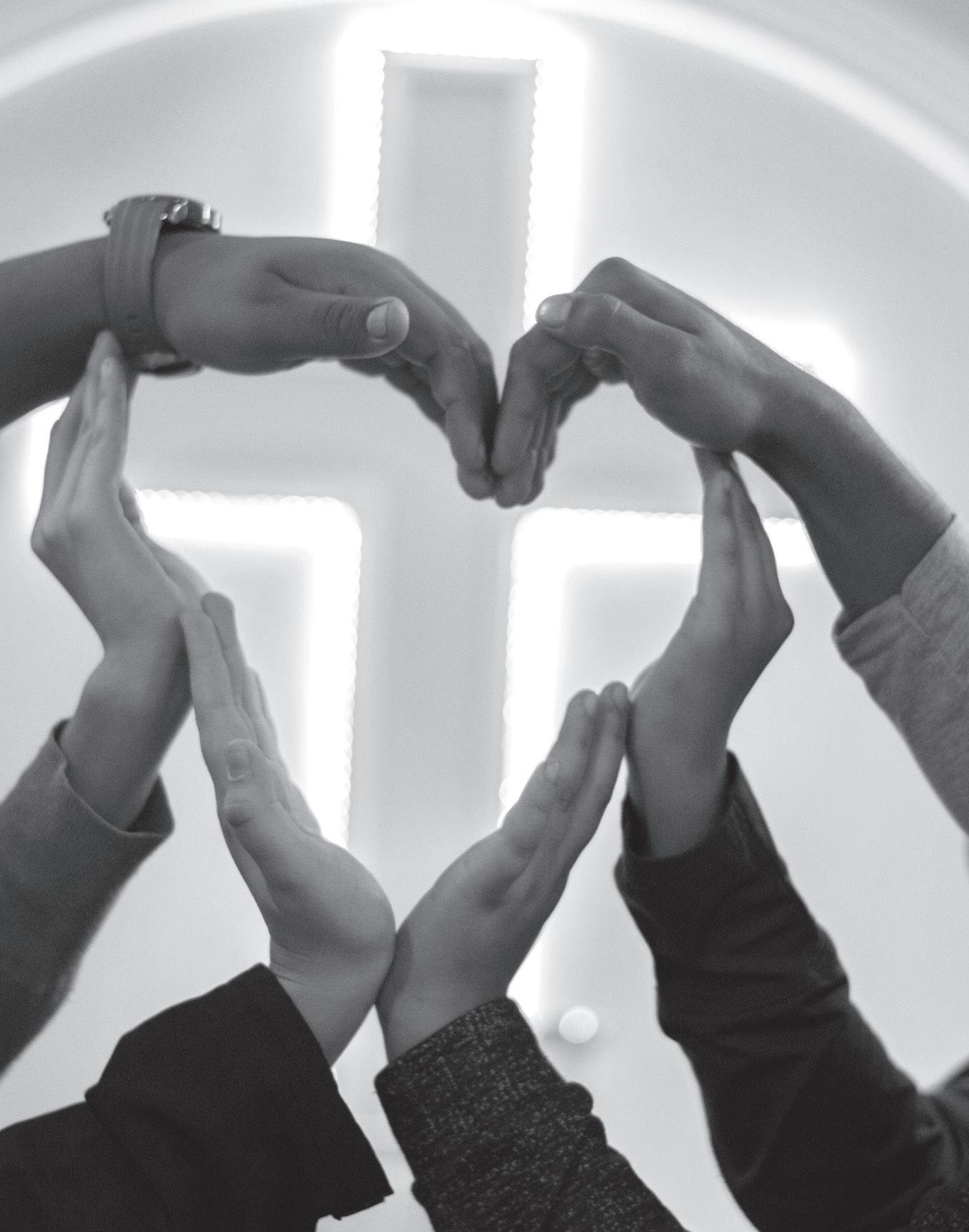








This issue of Mozaik focuses on the plight of refugees, migrants, and others who come to make Europe their new homes. We have a diverse perspective, from those who have come to settle in Europe themselves, to social workers and activists who support people who have fled conflict. Many of our contributions explain the situation in the home countries of their authors. This follows from our conference in Prosperous, Ireland, and our training session in Vilnuis, Lithuania.
Giulia’s article exposes some harrowing truths about the gendered dimension of the refugee crisis in Italy, while Angeliki explains the ancient history of this phenomenon in Greece. Naima explains the sometimes overlooked persecution of Christians in her home country of Pakistan, and Marta tells the story of a relaxing holiday for victims of violence ruined by police violence. Natalie’s account of Ukraine’s relationship with Europe reminds us that migrants are not just from outside Europe, but within as well.
Our resident theologians Hadje and Antonija give theological perspectives on the duty of Christians to strangers, evaluating Jurgen Moltmann and even Slavoj Zizek and critiquing Croatian Catholic fascists respectively. Progressive Muslim Fenna Te Berg shares a quick reflection of her time at our conference in Dublin.
Finally, we have some resources for our Federation, including workshops and training from presentors from Vilnuis, Taylor & Caitlin, and Global Federation General Secretary Necta’s reflection of the (recent) past, present and future of WSCF.
I am very proud to have worked on this issue of Mozaik with such a talented team of people. Our art editor Andrea, our illustrators Sanja & Clare, as well as the numerous contributors and photographers, who have shared their stories, experiences and expertise for our readers.
It is this in mind that I announce that this will be my last issue as Editor-in-Chief. It has been an amazing opportunity over the past years to be a part of such a diverse, interesting and historic federation, to escape from my island (and its island-mentality) and to travel all over Europe meeting people and hearing ideas.
Blessings,
James Jackson Mozaik Editor-in-Chief — james jacksonJames Jackson is a teacher, dj and editor based in Liverpool, uk. He has a Masters Degree in Religion & Political Life, and enjoys travelling, food and music.

Invisible Bonds: Trafficking of Nigerian women in Italy | Giulia Dalmonte | 7
Greek Hospitality: An Ancient History | Angelikí María Mitsaki | 12
Martyrs and Refugees: Christian Persecution in Pakistan | Naima Dominic | 17
No Rest for the Innocent: A Picnic attacked by the Police | Marta Gustavsson | 23
Emigrants Leaving Ukraine Behind | Natalie Rudnichenko | 26
The Prophetic Imagination in the Age of Refugees | Hadje Cresencio Sadje | 32
The Church’s Duty to Strangers | Antonija Potočki | 35
A Progressive Muslim’s View of wscf | Fenna Ten Berge | 39
Transition Work: Towards a Stable and Sustainable wscf | Necta Montes | 44
‘Havering’: a Creative Bible Study Exercise | Taylor Driggers | 50
How to make your SCM more Inclusive | Caitlin Wakefield | 53
mother teresa's poem - Anyway -
People are often unreasonable, illogical and self centered; Forgive them anyway.
If you are kind, people may accuse you of selfish, ulterior motives; Be kind anyway.
If you are successful, you will win some false friends and some true enemies; Succeed anyway.
If you are honest and frank, people may cheat you; Be honest and frank anyway.
What you spend years building, someone could destroy overnight; Build anyway.
If you find serenity and happiness, they may be jealous; Be happy anyway.
The good you do today, people will often forget tomorrow; Do good anyway.
Give the world the best you have, and it may never be enough; Give the world the best you've got anyway.
You see, in the final analysis, it is between you and your God; It was never between you and them anyway.
The Prophetic Imagination in the Age of Refugees | Hadje Cresencio Sadje | 32
The Church’s Duty to Strangers | Antonija Potočki | 35
A Progressive Muslim’s View of wscf | Fenna Ten Berge | 39
Today, the ever recurring question to the global Christian community is: how can the Church respond to the global refugee crises? Diverse public theologians and Christian organisations have provided numerous responses. On one hand, European Christian organisations have played prominent role in migrant integration. Take for example, The Churches’ Commission for Migrants in Europe (ccme) and World Councils of Churches (wcc), who never deviate from the fundamental premises that God calls to seek protection towards strangers and foreigners (Leviticus 19:33-34; Deuteronomy 19:34). However, some so called “Christian” European political parties and individuals are using Christian values and identities to proliferate fear and resentment towards immigrants. In 2015, for instance, Viktor Orban, Hungary’s prime minister, made a controversial public
statement echoing an anti-immigrant and anti-Muslim sentiment. Orban wrote, “We shouldn’t forget that the people who are coming here grew up in a different religion and represent a completely culture.” He further claims, “Most are not Christian, but Muslim....That is an important question, because Europe and European have Christian roots.” Of course, his statement has drawn criticism.

In this present challenge, however, are we really getting to the root of global refugee crisis? We appreciate the efforts of the various faith-based ngos that advocates migrants’ rights and the welfare of displaced people. Contemporary social scientists, in fact, acknowledge the valuable contributions of religious sectors as statecraft in nation-building. For example, Douglas Johnston and Cynthia Sampson argue, “To neglect religious institutions and thinking would be to render incomprehensible some of the key issues and crises in the world today.” But, are we ready to acknowledge and address structural evil or an oppressive social order?
For Walter Brueggemann, most contemporary churches suffer from a lack of prophetic imagination. For him, Christians fail to capture that global injustice is structural and not just a matter of choice by some individuals. Instead, for Brueggemann, we should carefully look at the problem and take the time to analyze prophetically or to use an act of imagination, which he defines as something that “presents lived reality in images, figures, and metaphors that defy our conventional structures of plausibility and that host an alternative scenario of reality that cuts beyond our conventional perceptual field.” In other words, ‘prophetic imagination’ aims not only to raise the question of the value of our values and social order, but also to call them into question, by raising doubts about their legitimacy and to offer an alternative scenario.
In the context of global refugee crisis, prophetic imagination suggest that we need to expose the distorted view of the eu refugee crisis. As Christian activists, we need to dismantle the illusionary notion of the “war on terror” ideology that breeds racism, white supremacy, Islamophobia, and Eurocentrism. Prophetic work exposes that the eu refugee crisis is a product of global capitalism, specifically the global military-industrial complex. For instance, The Transnational Institute (tni) and Stop Wapenhadel proves that arm sellers are now profiting from the eu refugee crisis. They said, “Most perverse of all, it shows that some of the beneficiaries of border security contracts are some of the biggest arms sellers to the Middle-East and North-Africa, fuelling the conflicts in the region that have led refugees to flee their homes. In other words, the companies contributing to the refugee crisis are now profiting from the consequences.”
Hein de Haas, professor of migration studies at the University of Amsterdam, making the same observation, said, “Arms and technology companies have reaped the main windfalls from Europe’s delusional ‘fight against illegal migration’.” This fact alone suggests that eu refugee crisis or
even the global refugee crisis is highly profitable at the expense of innocent people. Thus, Slavoj Žižek, a prominent social thinker, he publicly suggested, “We cannot address the eu refugee crisis without confronting global capitalism.”
At the end of the day, if the contemporary Christian churches are not willing to risk their comfort and fail to address properly the structural evil, the refugee crisis is and will continue to be a global problem. Nonetheless, using prophetic imagination, it help us to act prophetically toward structural power arrangements. It helps us to choose the paths toward a world more oriented around justice and humanity. It energizes us to act as a modern prophet in the age of the status quo. It empowers us to be an active despiser of an oppressive social order. It turns us into as a catalyst for social change and not just a social worker. Prophetic imagination turned us into a critical public theologian over academic theologians; and raises social issues as part of our theological concern. It enables to explain the causes of individual act and social forces behind the global refugee crisis. Hence, if we have a correct understanding of social phenomenon, this will lead to correct responses. Although it is a
risky endeavor to be a Christian prophet, we could avoid the sit-and-wait culture. As Žižek warns us, especially of the sitand-wait culture, by saying, “…Sometimes, doing nothing is the most violent thing to do.” Simply put, the only thing to do toward global problems such as refugee crisis, xenophobia, Islamophobia, hate speech, proxy war, and the globalization of military power----is to do nothing at all.
Walter Brueggemann, Disruptive Grace: Reflections on God, Scripture, and the Church, edited by Carolyn J. Sharp, (New York: Fortress Press, question 2011).
Hadje Cresencio Sadje is an associate member in the Center for Palestine Studies – soas, uk. He is a Master student at the Evangelical Theological Faculty – Leuven and has been working with various professional and faith-based organisations.


The refugee crisis in Europe started in the year 2015 as a result of a complex political situation in the Middle East. A wave of people fleeing away from the war zone are entering Europe in search of stability and peace. We are talking about a large amount of people, for which the European Union wasn’t prepared, nor did it have ready-developed methods for their integration in the existing social structures or adequate sensitization of the public concerning the slippery nature of the topic. The topic of refugees is reported on a daily basis (mentioned day to day) via the media, whether it be reports of solidarity of individuals and volunteers, the aftermath of war, dangerous routes, terroristic attacks, or problematic behaviors of asylum seekers – they are intertwined with our wrong perception of reality in our media overall.
Citizens are exposed to a vast amount of information on a daily basis, some of which is misleading while some bears
truth. Most people form their opinion on the refugee crisis only from this information. The Croatian country is divided when it comes to accepting people of other nationalities, cultures and religions into their society. Some sympathize, help and volunteer, while others deprecate the policy of acceptance and disperse the policy of hate. It is indeed a terribly sad thing that a lot of church and religious related circles are actually the ones spreading this negativity.
As a believer and a theologian I feel deeply hurt by this situation in my country and Church.
A good chunk of the clerical elite in Croatia is leading a xenophobic policy emphasizing the dangers of the Islamization of Europe, which they perceive as an attack on Christian identity. This is the same hierarchical program and propaganda that raises the faithful who very often only repeat the hateful mantras learned by heart and forget that they once were refugees too. Nothing like the Church in which the head is Christ, is it?
Migration is nothing new, since it was always embedded within the human psyche, but the reasons and different forms of migrations in the globalized world make them, in a completely new modus – a tangled and chaotic task to understand, which our society faces on all levels. Besides the
The once holy altars have now become a main instrument of marginalization of something that is foreign and different, they have effectively become a medium that propagates xenophobic policy which has become a symbol of a madeup inter-faith and inter-personal war.
socio-cultural or the economic component migrations also have a theological-pastoral element and are therefore an “omen of time” for the Christian Church which must respectably weigh and act righteously in a pastoral manner.

The refugee crisis in Europe is a wakeup call to all believers for a repeated initiation and return to the basic teachings of Jesus – of equality, justice, freedom and love for everyone, especially the smallest. Believers of the world are once again challenged to be the Light in the darkness and the water of Life modeled after the Savior. In this I do not only see the responsibility of the Church, but the duty of every believer individually. We mustn’t, and we can’t ignore the hardships to which we are all witnesses in the last couple of years since the beginning of the refugee crisis. Jesus said: “Truly I tell you, whatever you did not do for one of the least of these, you did not do for me“. This commandment is given to us for safekeeping and practicing, guiding us through life and as a timeless reminder of Christ.
So how exactly do the hungry stay hungrier and the poor even poorer? How come foreigners live on the edge of society when Jesus himself was a stranger?
Starting his mission, he took on a life of an evicted person who “has no place to lay his head“ (Luke 9:58). When he sent the apostles to spread the Gospel, he asked of them to go without a bag or clothes, to walk the ways like refugees and to completely surrender to the hands of kindheartedness and hospitality of ordinary people.
Jesus was a refugee. He ran away as a child with his parents, so he could return many years later to a new home as a stranger.
We are these common people to whom the apostles and Jesus himself visited. Because, Jesus is not some invisible figure, Jesus is in every soul which is looking for sanctuary and in every child in need of love. Because of that Church is asked upon to open the gates of Kingdom of God and to embrace the smallest of small no matter what religion, race or nationality they belong to. With coming of Christ there is no division or differences there is “No more: Jew – Greek! No more: slave – free! No more: woman – man! We are all One in Jesus Christ” (Gal 3,28)
Jesus Christ deleted our differences, but are we prepared to delete them when people in need approach us? Are we ready to give sanctuary to foreigners, water to the thirsty, food to hungry? Will the Church, which is the home of diversity, become a home of unity in which tired and the one that suffer can seek refuge? Commitment to foreigners on the margins of society is a journey to realization of true social justice. Oppressed refugees are educators of our society, because they are the reflection of what we have allowed to happen, and they show the necessity of changes to society and ultimately ourselves. Fra Mile Babic, the Bosnian theologian once said, “The difference is bigger, the greater the unity.”
— antonija potočkiAntonija comes from the land of a thousand islands, Croatia. She studies an ma in protestant theology and peace studies. She is a volunteer, activist and passionate fighter for social justice.

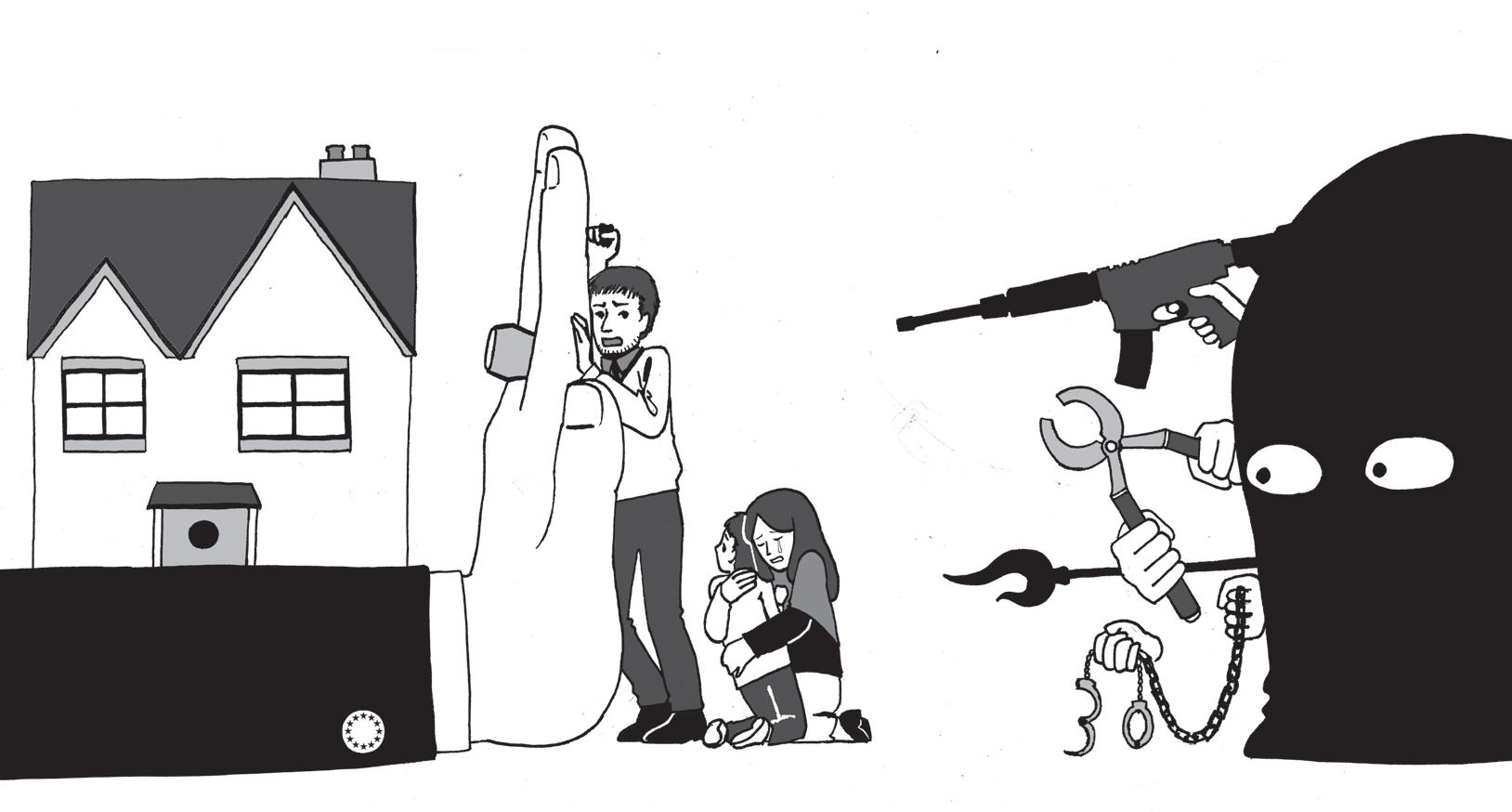
The duty of the Church whose head is made up of Christ and the body of believers is to make room for more limbs that will enrich the fellowship to which we are called. Let’s be the Samaritans of this time for the sake of the future. Let’s be a Church different and of different.

Last month, October 10-12 I attended wcsf’s conference on Perspectives on (im)Migration in Europe. mpv Nederland, the Dutch chapter of the global faith-based Human Rights organisation Muslims for Progressive Values, reported for the United Nations Universal Periodic Review on Muslim discrimination and xenophobia in the Netherlands, highlighting the compound and intersecting ways of discriminations Muslims face, especially Muslim women and sgn-Individu-
als. As such, I was invited to discuss on how perspectives on migration intersection with Muslim Discrimination, and the implications for asylum seekers, migrants and refugees.
It was the first time I participated in a wcsf conference, and even though at times during the conference I did feel out of place, my headscarf making it extra apparent I was the only Muslim woman, I experienced it as an enriching and
welcoming experience. I’ve felt greatly accepted by everyone present. I even joined the morning prayer sessions, a humbling and unifying experience. Especially when after attending a few days, other participants also joined me when I explained and lead an Islamic prayer. All differences and boundaries which are sometimes experienced when engaging with people from different faith-practises, were effectively removed through the shared spirituality and Godsense of these morning prayers. Re-parierter
ReizverschlussJust a week earlier I had another rewarding experience, when after a few months of hard work I joined a group of progressive Muslim organisations and like-minded individuals from Muslim communities worldwide to officially establish the global umbrella organisation Alliance of Inclusive Muslims (aim), which aims to achieve Human Rights and Dignity for All, Freedom of Expression, and Freedom of and from Religion. Especially necessary now that Human Rights are deteriorating and abuses are growing, and progress on issues as Religious Freedom and Gender Equality are effectively halted on a global level. Especially now that Muslims worldwide growingly become the victim of racism and discrimination, and are deliberately portrayed as ‘the Other’ for political gains, only fueling the process of dehumanizing. Especially as our belief and experiences are growingly trivialised and marginalised. Especially now, no matter how much we’d like to see it otherwise, we need to give a signal to the world that we exist; progressive Muslims who fight against Human Rights violations in the name of Islam.
We are trying our hardest to defend Universal Human Rights, and it is not easy.
Therefore, it hurt all the more when during my workshop one participant tried to whitewash the issue. Afterwards, I was left with a nagging feeling, until Salters Stirling, one of those truly inspiring torchbearers who, with many others, united after wwii to shape the Universal Declaration of Human Rights, spoke out: “I’m scared of my generation dying out, those who know how it is to be in war and what happens when a group of citizens is deliberately made into second-range citizens. As a human being and as a Christian organisation, we have the duty to raise the alarm, and prevent this from happening to future generations”.
With him, I hold my heart for anyone currently experiencing this process, whether it is for their religion, ethnicity, race or other factors, and grow more and more deeply convinced that it is our duty to fight this. A duty that we can only observe by working together with other like minded organisations and individuals, and we hope we can continue on this path together with wcsf and many others. We simply don’t see systematic discrimination or even abuse if we focus on the ‘Otherness’ of the other. And as I don’t like being the other, I have decided that I don’t want anyone else to become the other to me, and thus can no longer describe our religions as different. What we have in common is far more important: our shared goals, our shared love for the world and the desire to do right, our humanity, and even our deepest beliefs in a Creating and Loving God.
— fenna ten bergeFenna ten Berge is a Dutch researcher, translator and textwriter who converted to Islam in 2012, just before receiving her ma in Gender and Identity in the Middle East from the University of Exeter.


"If we have no peace, it is because we have forgotten that we belong to each other. "
Mother Teresa“Integration arises from intimacy with our emotions and our bodies, as well as with our thoughts.”
Sharon Salzberg,
"Marches alone won't bring integration when human respect is disintegrating."
Barry McGuire"There will never be a day where the depth of integration, unless it was all built from the bottom ground up, will be integrated as any of us would like."
Mark V. Hurd"Refugees are not terrorists, they are often the first victims of terrorism."
Antonia Guterres“The wscf has faithfully served students of the ecumenical movement for over a century. Thousands of ecumenical, civil society and social movements credit the Federation with empowering them in their quest for social justice and firm ecumenical relations.”1 In recent interviews with wscf partners and ecumenical organizations, they agreed that the wscf has been effective in “equipping students and young people to provide ecumenical leadership now and in the future with the explicit characteristic of being centered on justice and advocacy.”2
Undoubtedly wscf has been faithful to its mission and vision over the years and has celebrated the various milestone of its life as a global ecumenical youth movement. It has weathered through the most challenging times, both internal and external, in different periods of its history. Today, with six fully functioning regional structures supporting more than 100 member movements spread throughout all the continents in the world, the unique grassroots character of wscf is a testament of the diversity of witness it has provided and lived-out among various Christian student and youth communities in various contexts. It is the diversity the scm witness and dynamism of the grassroots movement that has been the core of the life of the Feder-
ation fulfilling the defining wscf motto, “Ut Omnes Unum Sint” (that they may all be one, John 17:21). In contrast with the concept of globalization, driven by the homogenizing ideology of dominant neoliberal capitalist economic model, wscf celebrates the diversity of life in Christ, the complex and multiple ways in which Christian Faith is lived-out and contextualized in the different scms all over the world.
Today however, the Federation is faced with yet another challenge that has threatened the very core of its existence, its sustainability and stability in the future.
Over the years the financial standing of the Federation has declined. Its core budget relied heavily on external funding coming from traditional funders that have themselves been experiencing financial challenges due the changing global financial landscape. Given the reach and depth of wscf’s human resources, it has not fully maximized the potential capacity of its constituency to mobilize for its financial sustainability. Even with the establishment of the wscf Centennial Fund in 1995 which aimed to support and ensure the financial future of the Federation, the financial standing of the Federation continued to decline.
As an organization, its structure needs to evolve into a more effective and efficient vehicle to make decision and carry-out actions in order to stay relevant and responsive
the challenges of the time. Over the years, wscf has experienced financial challenges that has threatened the survival of its structure in its current form. The recurring crisis has led to the postponement of the gathering of its highest policy-making body, the 35th General Assembly (ga). Recognizing the need to address this situation, the Executive Committee formed a Task Force for the Future of the Federation to study the situation carefully and present proposals for a change for the ga’s consideration.
The analysis of the wscf Future of the Federations (FoF) Task Group, presented in the wscf’s 35th General Assembly in Bogota in March 2015, described the situation of as the following, the “recurring financial crisis is a symptom of a deeper crisis in the Federation. The financial situation of the Federation has eroded over the years, so too has the clarity of its vision and purpose, the trust and confidence of its officers and executives, the relationship between the regional and the inter-regional offices. Sustained financial problems have resulted in years of increasing deficit and debt. Lack of clarity of function and responsibility has compromised the opportunity to tackle these seemingly intractable problems meaningfully and advance the work both regionally and inter-regionally. Relations with donors have soured in some cases and stronger project management skills are called for.” (Future of the Federation report to wscf ga, Bogota Colombia, 2015)
Following this analysis, the Bogota ga approved a Transition Plan with the following measures to begin the process:
• Articulate our common global vision and mission understanding for wscf (including global and regional priorities and concerns).
• Reform governance structure and constitution.
• Improve reporting and documentation of all wscf activities and events.
• Improve trust and communication between the
Inter-regional Office (iro), Executive Committee, Regional offices, scms and partners and donors.
• Rebuild trust and communication with traditional and new donors.
• Increase the income of the wscf (iro and Regional).
• Clarify roles, responsibilities and line reporting arrangements for staff at different levels (gs, Chairperson, Exco, Regional Secretary, scms).
• Improve the capacity of the iro, regional staff and ExCo members.
• Implement a process to consider the move of the iro, or, to relocate the Inter Regional staff to a more cost efficient location.
To implement and operationalize these recommendation, the Bogota ga also proposed a 6-months interim transition from April to Sept 2015, which later on was extended another 3 months until December 2015. This 9-month interim transition period was led by a group called the Transition Team. The overall purpose of the work of the interim Transition Team was to lead and prepare the transition towards substantial change in the systems and structures of wscf in

order to ensure its sustainability and stability at the end of a two-year period. The Interim Transition Team was mandated to develop and propose processes to reform first the (1) Governance Structure and second, the (2) Operational Systems of wscf from its current form and function. These reform processes are mutually inclusive and should be implemented simultaneously. Furthermore, The Transition Team’s role is to ensure that the nine (9) objectives set forth in the “Measures necessary in the next two years” (Future of the Federation Task Group Recommendation) will be achieved at the end of two years. The Interim Transition Team will implement the recommendations of Future of the Federation Task Group approved by the ga. It shall report to the Executive Committee in this six month transition period.
In the wider conversation of internal structural reform, the proposals addressed the following: movement building should be at the heart of the work of the Staff Team; the revised structure should encourage greater participation, democratic decision-making and communication between the global, regional, and national movements; the need for

clarity and stream-lining of bureaucratic processes in decision-making; a reduced and lean operational structure that is flexible and able to adapt to the changing needs of the Federation.
In specific terms this meant the following immediate actions, the majority of which required constitutional amendment changes:
• Changing from two Co-Generals Secretaries to one Secretary General (Constitutional amendment change)
• Re-focus the work of the six regional staff to movement building and strategic programming with a change in the title of the Regional Secretaries to Regional Executives and Global Program Directors (Operational change)
• Remove the provisions for the two proxies for regional representatives in the ExCo to reduce the number of regional representatives in the global structure (Constitutional change)
• General Assembly held every after six years of interval instead of four (constitutional change);
• Global operational work performed by the General Secretary will move to one of the regional office of the wscf; Regional offices conduct study of office locations (operational change)
• Integrate the reporting and accounting system of the six regions following the global standard and format (operational change)
• Online General Assembly as Extra-ordinary Assembly to amend the wscf Constitution (Constitutional change)
• Approval of the Strategic Plan 2016 to2019 (operational change)
• 2016 Budget approved and financial Solidarity agreed with the regions: 15% Contribution from regions to the core budget and expenditure (operational change)
→ may-dec 2015 (nine-months): From the Future of the Federation (FoF), the Transition Team carried forward the Bogota ga decision and preparation work; its objective was to develop the details of Transition Proposal for the ExCo’s approval.
→ august 2015: Staff and Officers Strategic Workshop in Birmingham to develop and bring together the four-year Strategic Plan and Transition Plan.
→ dec 15 2015 (two-years): wscf ExCo In-face Meeting and Transition Meeting in Palermo approve the Transition Proposals contained in the Palermo Communiqué. ExCo took-over leadership from the Transition Team and began implementing the proposals.
→ march 2016: On Exco election of Chairperson Georgine Djuetane, Vice-chairperson Salma Charaf, General Secretary Necta Montes elected by ExCo. General Secretary operation moved to Manila. Working Groups Formed: Constitutional Commission, iro location/relocation, Joint Fundraising Working Group.
→ june 2016: Officers and Staff reviewed the 2016 Palermo Budget, made some adjustments noting the lack of income from 15% Admin cost, emw funding reduced.
→ july 2016: ExCo Meeting, mid-year review of financial situation, 50% staff salary cut approved, ExCo appeal for support from the regions. Staff Model Working Group proposed.
→ aug – sept 2016: 2 Exco Meetings, Talks and negotiations with the wscf regional leadership regarding staff contracts and salary reduction.
→ october 2016: ExCo Meeting, regional reports on the ExCo appeal, first report from the Staff Model Working Group.
→ december 2016: Staff and Officers Assessment and Planning, review and adjust the Transition Plan and finalize the Strategic Plan, Staff Model presentation, 2017 Budget presentation and agreements
→ december 29 2016: On ExCo Meeting on wscf cf Loan Agreement, Staff Model Working Group 2nd report, 2017 Budget proposal discussion, internal debt discussion.
summary of what has been accomplished thus far?
☑ Paid-off debt to the World Council of Churches (wcc) in January 2016 (Bogota 5)
☑ Adopted new Job Descriptions and changed the titles of the staff to reflect the gradual shift to a new staff model with a program focus direction of the Strategic Plan. (Palermo 2, Bogota 8)
☑ Relative stability by prudent financial control, reduced global operating cost by closing 3 offices in Geneva and moving to Manila and other cost-reduction measures (Bogota 9, Palermo 5)
☑ iro office and regional office relocation studies reports completed and submitted to the ExCo in March 2017 for approval and decision. (Palermo 5)
☑ wscf Online ga conducted and completed May 22 to 28,2017. 60 delegates participated to vote on 17 amendments submitted by ExCo, scm Norway, scm hk 5 amendments passed. (Palermo 7, 1)
☑ 2016-2019 wscf Strategic Plan completed, popularized and regional action plans calibrated. (Bogota 1, Palermo 8)
☑ Funding report back-log cleared/submitted (3 Annual Reports, ga Report and Project Reports), standardized and regularized and documentation has improved, maintained core funders support for2-year transition work: emw, ucc, uk Methodist, Waldensian Church Otto-per-Mille and Centennial Fund (Bogota 3, 5)
☑ Financial solidarity from regions formalized in 2017 Budget with admin regional contributions approved. Financial information integration preliminary work in developing a standardize financial reporting format (Palermo 9, 6)
☑ wscf new Staff Model proposal version 2 with inputs from regional leaders and staff. (Palermo 2)
☑ Hired a fund-raiser in April 2017 with Centennial Fund support (Bogota 6)
In less than two years of transition work, we planted the seeds of transforming the structure, management and organizational culture in the Federation in order to respond to the movements, renew our prophetic role, and demonstrate good stewardship of resources. Under very difficult financial circumstances, we demonstrated our ability to sustain ourselves with a functioning governance structure and continue with our core programmatic work of leadership formation, movement building, advocacy and solidarity, networking.
We consolidated and redirected the regional program direction of the Federation towards the Strategic Plan as the over-all framework. This became the tool for fundraising for programs, which will hopefully increase our capacity to support core expenses for staff salaries in the coming years.
In this period, we explored different ways of working to accomplish the different aspects of the Bogota and Palermo mandates. Significant roles played by senior friends working with ExCo members serving in different capacity in the four working groups formed, Constitutional Commission, Fundraising Working Group, Staff Model Working Group, iro location/relocation Working Group.
There is much to be done to ensure that the full-range of recommendations both from Bogota General Assembly and Palermo Executive Committee are fully implemented. In this process, challenges arises and inherent problems and contradictions surface.
what are the key challenges in the next two years?
1. The Federation needs to develop a common understanding of the change process, the meaning and intent of Culture Change in the context of our organizational transition, and its scope within the Federation. We must develop plans or strategies how to go about this internal change from global, regional and national levels.

2. Building Financial Solidarity within the family of the Federation, by resourcing ourselves from within our family remains a challenging task. Our experience in 2016 indeed confirmed that we will have to rely on ourselves for our survival especially in critical periods.
3. The transition and change cannot work without the regional structures cooperation and self-understanding. There is a need to develop understanding and synchronize, both the global and regional structures. We need to evaluate the functions and roles of the regional structure vis-àvis the changes in the global structures in order to function as a cohesive organization.
4. Re-skill and re-orient the role and function of the Staff Team and Executive Committee to meet new expectations and needs of the changes that has been implemented or will be implemented further.
5. The process of developing the wscf Staff Model based on the Strategic Plan is a key component in the implementation of the next two years post transition. It is therefore important to take into consideration the long-term financial, structural, programmatic implications and practical impact of the new model that will be put in place after the transition period.
Necta Montes, wscf general secretary, is from the Philippines and is a member of the United Church of Christ. Necta was previously the regional secretary for wscf Asia-Pacific, and project coordinator of the wscf Asia-Pacific Regional Women’s Program Executive Committee member.

If you’re anything like me, you probably find it difficult to be particularly surprised by anything in the Bible. You may have heard the stories repeated over and over in Sunday school growing up, or you may be a part of a tradition that follows the lectionary, where different readings of scripture are chosen for particular times of the year. The diverse and multifaceted narratives contained within scripture can become so much a part of us that we don’t think twice about them; we may have even been taught to interpret them a specific way. When this happens, we can often lose sight not only of the message of radical love, inclusion, and liberation found in biblical texts, but of the rich and complex lives these texts present to us. We often find ourselves needing a new way of reading scripture and unsettling our preconceived notions about the text.
One exercise I like to use to read the Bible differently is ‘havering’, a way of creatively imagining ourselves into biblical texts as a community and letting conversations arise out of surprising encounters with each other as biblical characters. I first encountered this role-playing exercise when I was at a workshop led by the Iona Community’s Wild Goose Resource Group and have since adapted it for use at scm events in Britain. The name of the exercise conveys two things. In Scotland, where I live, to ‘haver’ is to have casual conversation or make idle chit-chat. But the word is also phonetically similar to the Aramaic word havruta ( )
which refers to a style of Jewish Talmudic study in which people analyse, question, and debate a sacred text together.
In this article, I’ll outline how to facilitate a havering exercise in your own scm group. I’ll also discuss the ways in which reading the Bible through havering can help uncover unexplored corners of biblical texts, bring to light voices in scripture that we might not otherwise pay attention to, and teach us more about scripture, ourselves, and each other.
step 1: plan and prepare
I should probably start by saying that havering is not a short exercise. You should probably allow for at least an hour’s time, but ideally the more time you set aside the better. Havering works best when everyone in the group is given plenty of time to reflect on each step of the process. It also tends to work best in groups of about nine or more people, though you can probably find ways to adapt it to smaller groups as well! It’s best, if possible, to have a good idea in advance of how many people are going to participate in the exercise.
Next, you’re going to want to select some scripture passages. This tends to be one of the trickier bits. I usually try to go with about five or six brief snippets from the Bible that share a common setting and theme. For instance, at an scm
gathering where the theme was ‘Justice’, I selected passages from the Gospels in which people’s lives are disrupted by Jesus’s demonstrations of justice: healing people in the temple on the Sabbath, overturning traders’ stalls, etc. At another, where the theme was ‘Difference and Inclusion’, I chose passages from the book of Esther because of that story’s parallels to current politics.
Make a list of all the different characters in the passages you’ve chosen, making sure that the number matches the number of people who plan to take part. Some questions you might consider when selecting passages and characters are: what might these characters have to say to each other? Are there any unnamed characters it might be interesting to hear from? If there are any outside observers, what might they think about what’s going on? What power dynamics might be interesting to explore in a group?
For the actual workshop, you’ll ideally want a venue with a lot of space to wander around and chairs that can be rearranged. On the day, post the various scripture passages you’ve chosen around the room (make sure for accessibility purposes that they’re written out in a large, easily legible font). You will also need a basket with slips of paper with characters’ names or titles on them, and enough copies of a full list of characters for everyone in the group.
Begin the exercise with everyone sitting in a circle, briefly introduce the exercise, and then encourage people to wander around the room and reflect on the passages you’ve chosen, allowing everyone time to read and mull over all of them (I’d suggest about 15 minutes). Then return to the circle, pass around the basket of names, and have everyone draw one (be sure to draw one yourself as well!). The name they draw is the character they will role-play as for the duration of the exercise.
Pass around the lists of character names and allow some time for everyone to think about or write down one question they would ask every other character from the texts. Encourage people to additionally think about their character’s personality if details in the text are sparse: what’s their background? What motivates them? What’s their outlook on life, and what are their opinions, passions, priorities? Then, split everyone up into small groups of about three or four (how you do this is up to you, but more often than not any group of three creates an interesting dynamic) and join a group yourself to begin the conversations.

step 3: let the havering commence!
Small-group discussions are a part of the exercise that can more or less run themselves: but here are a few things you will want to consider and/or alert the group to in order to ensure that a healthy environment is maintained:
Firstly, roleplaying will come more naturally to some people than others, and there will inevitably some moments of awkwardness. Don’t be afraid of that! Try to inhabit your characters as vividly and boldly as you can.
Secondly, don’t just stick to your preconceived notions about either the text as a whole or your character’s role in it. You’re there to give your character a voice! Think about their perspective, how they would be feeling, and the limits of what they know and don’t know at this point in the story. These all add colour and interest to the conversations that will take place.
Finally, any good story has conflict, and it will probably be inevitable as the small groups will probably have any number of differences in power, outlook, age, culture, etc. relevant to the characters. Don’t be afraid of conflict! Lean into the conflict, explore it, see what emerges from it. But also: keep it nonviolent and confined to the roles you’re inhabiting, and try to remain mindful and considerate of others in the group.
Allow for around ten minutes for the conversation, though if the conversation is lively or if there’s a lull you may wish to adjust the time limit. If time permits, you may also wish to shuffle around the groups a couple times to see what different combinations of characters can reveal.
step 4: reconvene and reflect
Once you’re done with the small group conversations, call the group back to the circle to return to themselves and reflect on what just happened. This part is essential to un-
packing and processing the encounters that have just taken place, and it’s also an opportunity for participants to give feedback. Some questions you might ask to facilitate discussion are: what struck you about other people’s behaviour? What struck you about the role you found yourself playing? Did anything make you uncomfortable? What did you find helpful about the exercise? What did you find unhelpful or difficult? What do you think you’ll take away from this exercise? People’s reflections can be many and varied, and often depend on the role they play! What’s important is that you create an opportunity to come back together as a community. After you’ve allowed time for reflection as a group, you can have someone close in prayer.
In addition to enriching our understanding of the Bible, havering can open up new connections between biblical texts and our lived experiences. It asks us to draw parallels between the lives of biblical characters and the way we interact with others in the world, and it allows us to use scriptural narratives as a framework for exploring how to have difficult or confrontational conversations. Most importantly, it’s a way of making scripture come alive in surprising ways and establishing scriptural interpretation as an active, communal engagement with the text.
Taylor Driggers is a PhD student at the University of Glasgow and co-convener of the scm Glasgow Network. He has served on General Council for scm Britain as International Student Representative.

how to make your scm more lgbtqi+ inclusive
In spite of increasing acceptance of lgbtqi+ rights throughout Europe,1 there still remain significant obstacles to daily life for those who identify as lgbtqi+. In 2012 the European Agency for Fundamental Rights conducted a survey of lgbt people living in member states.
They found that in the preceding year 47% of respondents had experienced discrimination or harassment because of their perceived sexual or gender identity.2 From employment and education, to healthcare and social services, the picture we can draw from this survey is bleak.
1 “eu lgbt Survey; European Union Lesbian, Gay, Bisexual and Transgender Survey Results at a Glance,” European Agency for Fundamental Rights, p.3, accessed April 30, 2017. http://fra.europa.eu/en/publication/2013/eu-lgbt-survey-european-union-lesbian-gay-bisexual-and-transgender-survey-results
2 Ibid.
As Student Christian Movements we have a duty to be radically inclusive, support our lgbtqi+ members, educate ourselves and others, and work for justice in our communities. If we begin by nurturing our own groups through creating the right environment, we will soon find that our focus can move outward to engage with our wider university communities, cities and countries.
Here are some practical ideas your scm can use to do just that.
It isn’t enough to say that your scm is inclusive without really working for it. Make sure that there are people who identify as lgbtqi+ at all levels within your organisation, ask for their opinions on how you can improve, and invite them to take the lead in making things better.
• Be representative - consider appointing an lgbtqi+ Representative to your national, regional, or local scm council. They should ideally be someone who identifies as lgbtqi+ and who is committed to overseeing inclusion in your scm. This is a role that can exist to give practical support to other members and groups, to represent an lgbtqi+ perspective at regional and national meetings, and to drive change within your scm.
• Be accessible - if you hold a regular group, or are running an event, remember that accessibility is important for lgbtqi+ people. Along with wheelchair access and induction hoops for disabled members, try to provide gender neutral toilets for lgbtqi+ members who would like them. If you’re unsure of someone’s requirements it’s always best to ask.
• Be explicit - once you’ve made steps to create your inclusive environment be explicitly supportive - state on your website, social media accounts, and publications that you are inclusive of lgbtqi+ people. This will allow students looking to join to instantly sense if they are welcome at your scm.
Whether you have members in your groups who are out as lgbtqi+ or not, creating a supportive environment for sexual and gender diversity is important. By doing so scms can create a safe space for people to explore their own sexuality and gender identities, as well as signalling to the wider community their commitment to lgbtqi+ rights.
• Be clear about pronouns - agree with your group a protocol for asking for the pronouns that people would like to be used when referring to them. Always call someone by the pronouns they prefer, correcting yourself and others if you get it wrong.
• Use social Media - create a private group for lgbtqi+ members of your scm. This can be to discuss lgbtqi+ Christianity, to plan events, or just for general support. Even if it’s only to share cat videos, a private space can be very important for young lgbtqi+ Christians to interact with their peers.
• Offer financial support - consider offering bursaries to members who could otherwise not attend your groups or events. lgbt people are more likely to experience poverty than heterosexual people,3 and
3 sc Noah Uhrig, “An Examination of Poverty and Sexual Orientation in the uk,” Working Paper 2014-02, Institute for Social and Economic Research (University of Essex), pp 37-39, accessed April 30 2017. http://www.poverty.ac.uk/editorial/poverty-and-sexual-orientation
increased discrimination means that lgbt people are less likely to make a transition from education to work.4 It stands to reason that lgbtqi+ people might then have more financial difficulty regularly attending groups or events. If this is the case in your scm, a small bursary for travel or accommodation can really help lgbtqi+ members.
• Signpost - be aware of services in your university or city that lgbtqi+ people might need access to. This could be mental health services, an equality officer, sexual health clinics, or just gay clubs and communities. Have flyers and contacts for these groups that you can give to those who need them; even better make contact with these groups yourselves to set up a working relationship.
Everyone has a duty to be aware of the challenges facing lgbtqi+ people and other groups, such as disabled people, ethnic minorities, and asylum seekers. Fortunately there are lots of resources you can use to educate yourself and your group.
• Read - there are lots of good websites you can use to better understand lgbtqi+ identity, politics, history and news. The following websites are good places to start:
4 “Green Paper – Improving the mental health of the population: Towards a strategy on mental health for the European Union (com (2005) 484)”, Written Contribution from ilga-Europe ,May 2006, p.4, accessed April 30 2017. https:// ec.europa.eu/health/archive/ph_determinants/life_style/mental/green_paper/ mental_gp_co055.pdf
http://lgbt.foundation/information-advice/ http://lgbthistorymonth.org.uk/ https://www.lgbtyouth.org.uk/ http://www.onebodyonefaith.org.uk/ http://everydayfeminism.com/tag/lgbtqia/
• Share - share articles, videos and comics you’ve found with your members via your social media accounts This allows you to share information and encourage one another; it is also a visible sign to the wider community that you care about lgbtqi+ issues. You could even consider starting a discussion or book group.
• Invite - ask someone to come and talk to your group. If you know someone who identifies as lgbtqi+ and who is willing to share their experiences, invite them to come and talk to your group by giving a presentation or by holding and Q&A session. You could invite someone in your group, university or wider community; if they’re knowledgeable, passionate, and interesting so much the better.
• Run an event - a good way to increase your own and your members knowledge is to run an event regarding lgbtqi+ issues. This could be anything from a debate, to a lecture, to a film screening. Topics could include the intersection of religion and lgbtqi+ community, a history of lgbtqi+ people in your country, a celebration of lgbtqi+ heroes, or even an arts night featuring excerpts of music, art and literature made by lgbtqi+ people. Start by deciding who you want to come to your events, what you want them to learn, and how you want them to be challenged - this allows for a massive variety of audiences, topics, and styles.
Once you have a solid understanding of the issues facing lgbtqi+ people your scm can play a part in working for social justice. There are many issues and groups to get involved with, by choosing the one that you can realistically work with you increase your chances of making a difference.
• Identify - identify areas for concern. Every European country has issues that it needs to address when it comes to lgbtqi+ inclusion - find out what they are in your country. It might be to do with hate speech, with lack of legal protection, or with mental health. Whatever the problem is, once you identify it you can work towards combatting it.
• Get involved - collaborate with an lgbtqi+ charity that already works in the area you want to target. The easiest way of reaching those outside of your scm is by aligning yourself to a charity that is already doing good work. Donate your money, time and talents, or ask if you can work together towards a specific aim.

• Go national - be aware of what is going on in your country. If your government introduces discriminatory legislation, protest it. If you think your government should introduce new legislation, campaign for politicians who promise to deliver it. There are lots of ways you can work for justice on a national level, including writing to politicians, campaigning, protesting on social media and attending demonstrations. Make connections with other charities, build community, and show up to events, talks, and protests.
• Go international - keep up to date with international developments surrounding lgbtqi+ people. Know which countries are working towards better inclusion, which only pay lip service to it, and which are outrightly homophobic and transphobic. If you can understand this you can measure your own country in comparison, identifying areas for growth and celebrating areas in which you’re doing well. Protest for lgbtqi+ people in other countries who face discrimination and harassment; for example the gay men in Chechnya who have been rounded up and tortured by the authorities there.
These are only some of the things you can do towards making your scm more inclusive of lgbtqi+ people. By following small steps you can build a movement that is radically inclusive, that educates and supports its members, and that works for justice in the local, national, and international community. Be persistent, work together, and ‘do not be afraid, but speak, and do not be silent.’5
wscf-europe.org